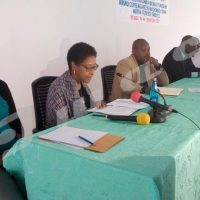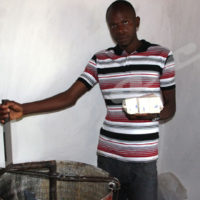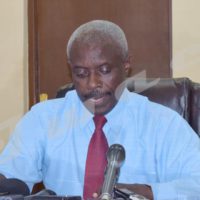Three weeks have passed since the new Fundamental School program was officially launched. After being so controversial, one could wonder what the results are so far, and the kinds of challenges encountered by teachers and pupils– By Joanna Nganda
![“[…] when you miss out on a teacher you miss out on everything,” says Mrs. Eulalie Nibizi, Chairwoman of the Trade Union of Education Workers (STEB) ©Iwacu](https://www.iwacu-burundi.org/englishnews/wp-content/uploads/2013/10/Eulalie-Nibizi.jpg)
“[…] when you miss out on a teacher you miss out on everything,” says Mrs. Eulalie Nibizi, Chairwoman of the Trade Union of Education Workers (STEB) ©Iwacu
“Most schools don’t have teachers anymore due to the fact that all teachers regardless of their level were sent for the new program training, leaving their former classes empty with no teachers to replace them. We observed this phenomenon in Kanyosha where all the teachers focused on the 7th year. The first problem is the number of deployed teachers”, says Nibizi.
She indicates that the second problem is non-functional classrooms. A quite number of rooms were not ready to receive pupils. In Ngagara for instance, pupils went to class last week and only found out that classrooms were still prepared.
The teachers’ heavy workload
Private schools have expressed their disagreement to give too many classes to only two teachers, they have tried everything to see how it could work out but the results were not conclusive. It is too difficult to let only two teachers give courses in one class during the whole year as recommended by the new program.
Although, they are willing to follow the new program but they are afraid of jeopardizing the pupils’ education. For most private schools, they would prefer to keep the alternative organization where English and French teachers, for example, will keep teaching their subjects respectively and independently in a rotating way.
It has been noticed that all teachers were not ready because they didn’t have enough training; however, they are afraid of standing against the government’s decision as mentioned by Nibizi.
According to her, a good teacher needs to get enough time to study and learn before teaching, especially the one who will be dealing with foreign languages. In any teaching methodology, a teacher in any topic needs sufficient teaching methodology, practice and experience to reach his objectives.
Mrs. Eulalie Nibizi also points out that it is very difficult to modify the way of teaching and the program without preparing teachers and classrooms appropriately. Furthermore, she underlines the problems of very large classes.
According to many teachers, pupils will be the first victims of the new program even though teachers are also concerned.
Christa-Bella M., 14 years old, a pupil in a private school of Bujumbura has this to say: “the teacher doesn’t always know how to pronounce some words in English or in Kiswahili. He sometimes asks pupils how to pronounce it! In Mathematics, when we ask questions to the teacher, he doesn’t respond, he only says take it as it is!” In the same way, once Nibizi has stated that “when a pupil misses out on a teacher he misses out on everything”.
Improvement can be made
Eulalie Nibizi and many experts in education put forward that any new program needs to be prepared and experimented prior to its launching. Most of them agree that the system can be improved if enough time is allotted to its careful preparation, testing or evaluation and its implementation.



















 IWACU Open Data
IWACU Open Data

